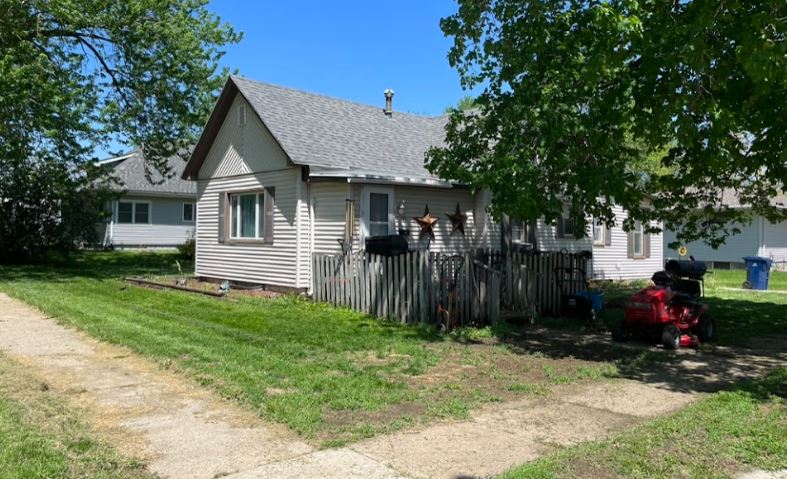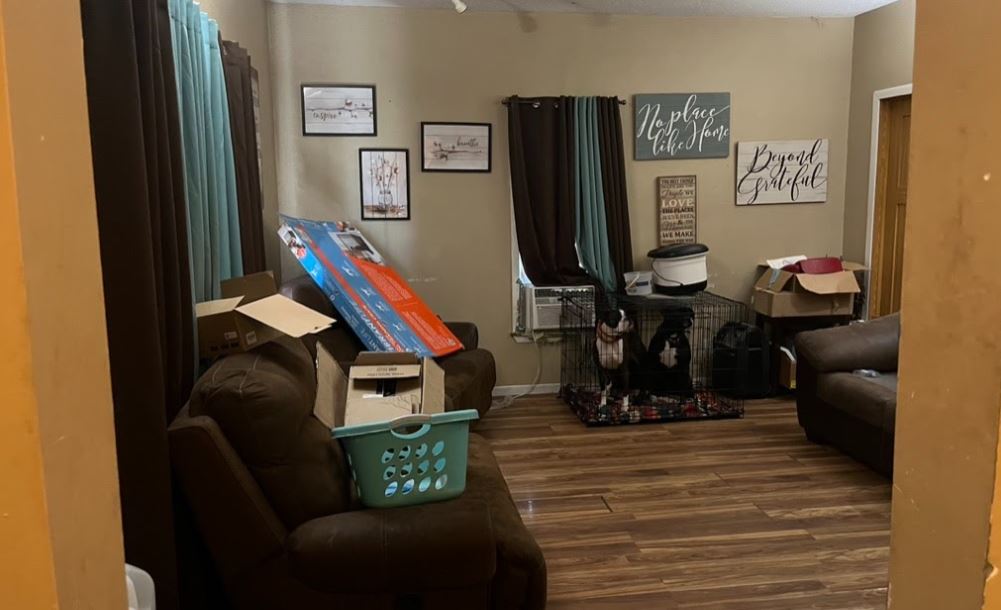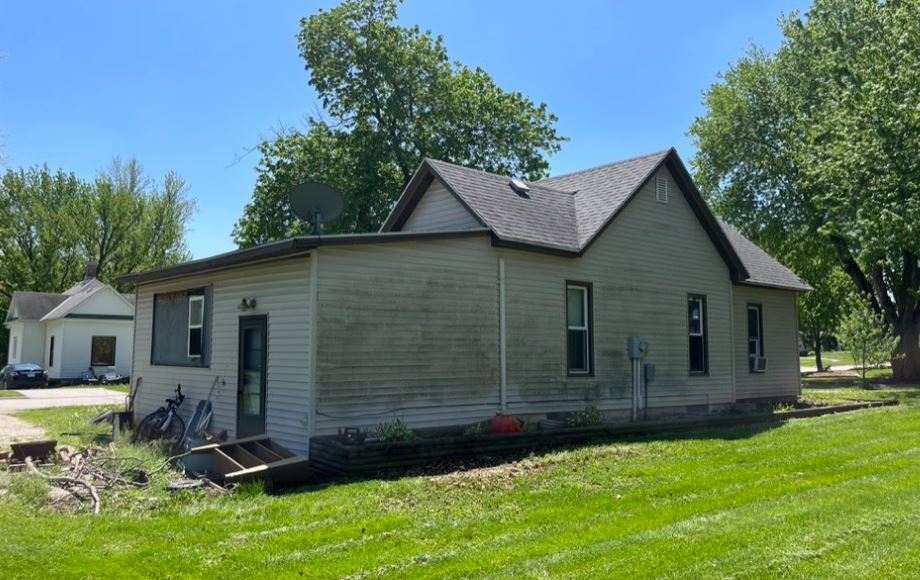Deciding what to do with a distressed home can be a headache.
Do you invest time and money into repairs and renovations, hoping to attract top dollar? Or do you list it as-is and face a smaller buyer pool and potentially lower offers?
This decision can make a significant impact on your bottom line.
In this post, I'll go over the pros and cons of repairing a distressed home before selling, and the best way to do it.
Plus, I'll also show you a couple of other ways to increase your home's value.
Pros And Cons Of Repairing A Distressed Home
The biggest advantage of repairing a distressed home is the potential increase in property value.
And a well-maintained house is more likely to attract higher offers and sell faster than a home in disrepair. It's also more appealing to buyers, which can speed up the selling process.

Plus, a home in good condition leaves less room for price negotiation, allowing you to sell closer to your asking price, or even more.
However, the costs can quickly add up, especially if the home needs significant repairs, and there's no guarantee that you'll recoup your investment.
Some renovations may not add as much value as you expect.
Renovations can take a considerable amount of time, and time is not a luxury many homes in financial distress have.
On the other hand, selling a distressed home as-is can save you time and money upfront, but you may have to accept a lower selling price and a smaller pool of potential buyers.
| Pros | Cons |
| Increased property value | Expensive / high upfront costs |
| Faster sale | Takes time |
| Greater negotiating power | No guarantee of ROI |
| May attract higher offers |
Also Read: Structural Damage In Distressed Houses
DIY Vs Hiring A Contractor
If you are going to repair and renovate, you'll need to choose between doing the work yourself (DIY) or hiring a contractor.
DIY projects can save you money on labor costs, but they can also be time-consuming and may require specialized skills and tools.
And there are some repairs that you can never DIY.
Hiring a contractor can be more expensive.
But it can save you time and ensure that the work is done correctly and up to code.
Discount Contractor Vs Established Contractor
If you decide to just hire a contractor, you'll need to choose again - are you going with a discount contractor or an established one?
Discount contractors may offer lower rates, but they may also have less experience, use lower-quality materials, cut corners to save costs, and worst case scenario, take your money and not even finish the job.
Established contractors usually charge more but they'll:
- Provide better workmanship,
- Use higher-quality materials
- Offer warranties or guarantees on their work.
Ways To Increase Your Home's Value
Here are 6 good ways to increase your distressed property’s market value:
#1 Bathroom Remodeling
Bathroom remodeling can be a worthwhile investment when preparing to sell a home.
An old or rundown bathroom can really put off potential buyers, but a fresh, modern one can make your home seem a lot more valuable.
Remodeling tasks may include:
- Replacing old fixtures
- Updating tiles or flooring
- Installing a new vanity or countertops
- Adding modern lighting and storage
#2 Kitchen Renovation
Kitchen renovations can also net a big ROI when selling a home.
The kitchen is often considered the heart of the home, and an outdated or poorly designed kitchen can be a deal-breaker for many buyers.
Renovations may involve updating countertops, cabinets, appliances, flooring, and lighting.
Even minor updates like refacing cabinets or replacing outdated hardware, can make a noticeable difference in the overall look and feel of the kitchen.
#3 Energy-Efficient Upgrades
Making energy-efficient upgrades, like installing new windows, insulation, or energy-efficient appliances will also increase your home's value.
Plus, it might even lower utility costs for the new owners.
These upgrades can be attractive to eco-conscious buyers
For example, high-efficiency windows can improve insulation and reduce heating and cooling costs. And energy-efficient appliances can lower electricity and water usage.
This will save a huge amount of money from energy bills in the long-term.
#4 Staging
Staging your home can make it more attractive and seem like a better deal to potential buyers.

Basically, it means arranging your furniture, art, and decorations in a way that shows off the best parts of your home and makes it feel cozy and welcoming.
This helps people imagine themselves living there, and it can even make a small home seem bigger and more inviting.
So reach out to a professional home stager.
They know how to make each room look its best!
#5 Improve Curb Appeal
Improving your home's curb appeal can really up its value.
This involves things like landscaping, repainting the exterior, replacing the front door, or installing new outdoor lighting.
A tidy exterior with nice landscaping and a fresh coat of paint can leave a great first impression and increase the perceived value of the property.
Even small details like a new mailbox, house numbers, or a welcoming entryway can have a big impact on curb appeal.
#6 Minor Renovations
Big renovations can definitely be expensive.
But, you can still boost your home's value without spending a fortune and minor repairs and renovations are usually easier to DIY.
Simple things like giving the walls a fresh coat of paint, swapping out old light fixtures, or refinishing hardwood floors can work wonders.
These little changes can give your home a more modern vibe, which is attractive to buyers.
For example, a fresh coat of paint in neutral tones can brighten up rooms and make them feel more spacious.
And updated light fixtures can add a touch of style and sophistication.

